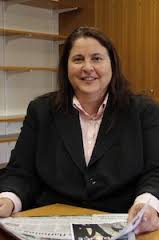Disability studies is an academic discipline that examines the meaning, nature, and consequences of disability. Initially, the field focused on the division between "impairment" and "disability", where impairment was an impairment of an individual's mind or body, while disability was considered a social construct. This premise gave rise to two distinct models of disability: the social and medical models of disability. In 1999 the social model was universally accepted as the model preferred by the field. However, in recent years, the division between the social and medical models has been challenged. Additionally, there has been an increased focus on interdisciplinary research. For example, recent investigations suggest using "cross-sectional markers of stratification" may help provide new insights on the non-random distribution of risk factors capable of exacerbating disablement processes. Such risk factors can be acute or chronic stressors, which can increase cumulative risk factors The decline of immune function with age and decrease of inter-personal relationships which can impact cognitive function with age.

The University of Kelaniya is a public university in Sri Lanka. Just outside the municipal limits of Colombo, in the city of Kelaniya, the university has two major institutions and seven faculties.

Kumari Jayawardena is a Sri Lankan feminist activist and academic. Her work is part of the canon of Third-world feminism which conceptualizes feminist philosophies as indigenous and unique to non-Western societies and nations rather than offshoots of Western feminism. She has taught at the University of Colombo and the International Institute of Social Studies.
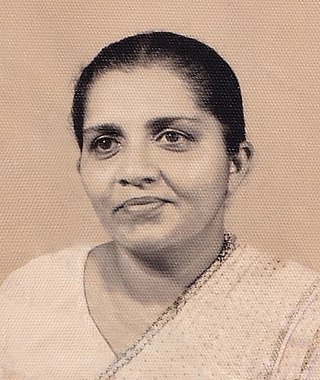
Violet Vivienne Goonewardene, commonly known as "Vivi", was a Sri Lankan anti-colonial activist and prominent politician, serving as one of the world's first female ministers. A key figure in both the Indian independence movement and the Sri Lankan independence movement, Goonewardene was a prominent member on the non-aligned stage, where she fought against perceived injustices and was critical of the Middle East diplomacy sponsored by the United States. Goonewardene was the first and, to date, only female National Hero of Sri Lanka. By her death, she was one of the Left's most vibrant personalities, and the foremost female figure in the Sri Lankan leftist movement.
Yashoda Wimaladharma is a Sri Lankan actress in Sri Lankan cinema, stage drama and television. Often referred to as the "innocent on the small screen", Wimaladharma excelled in cinema, television and theatre in a career spanning more than three decades. Through her experience in domestic and foreign cinema, she is also working as a jury member of foreign cinema festivals.

Professor Maithree Wickremesinghe is the current First Lady of Sri Lanka as the wife of President Ranil Wickremesinghe. She is a Sri Lankan academic, writer, and professor of English at the University of Kelaniya. She specializes in gender and women's studies.
The University of Colombo currently has seven faculties with 41 academic departments and two interdependent schools with five academic departments. All faculties and schools carries out courses of study and research in both graduate and undergraduate studies. In addition, the university has several institutions that specialize in different areas of research.
Ableism is discrimination and social prejudice against people with physical or mental disabilities. Ableism characterizes people as they are defined by their disabilities and it also classifies disabled people as people who are inferior to non-disabled people. On this basis, people are assigned or denied certain perceived abilities, skills, or character orientations.
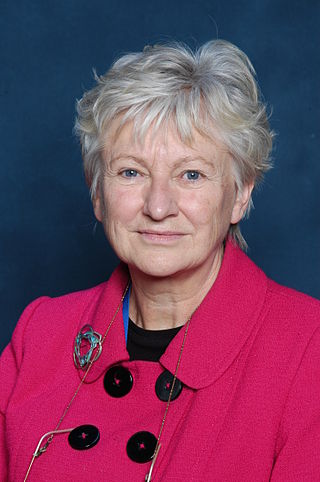
Angela W. Little is Professor Emerita at the Institute of Education, University of London. She is known for her work in primary education policy and practice in developing countries as well as education planning, program evaluation and assessment. In particular she has focussed in seven main areas:

Julianne Schultz FAHA is an Australian academic, media manager, author and editor. She was the founding editor of the Australian literary and current affairs journal Griffith Review. She is currently a professor at Griffith University's Centre for Social and Cultural Research.
The Faculty of Medicine of the University of Kelaniya located in Ragama, is one of eleven state medical schools in Sri Lanka. It is on a 35-acre campus at Ragama, and the faculty began classes with the admission of 120 students in September 1991. Before that it was called the North Colombo Medical College (NCMC).
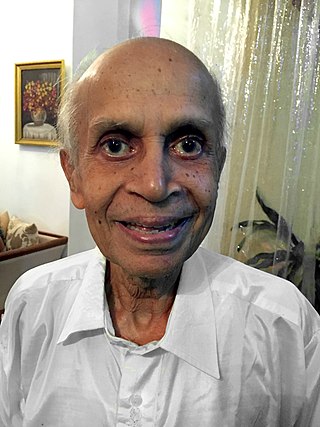
Carlo Fonseka was a Sri Lankan physician, academic and political activist. He was a former dean of the Faculty of Medicine, University of Kelaniya and a former president of the Sri Lanka Medical Council.
Jean Isobel Martin FASSA was an Australian sociologist who was a pioneer of the discipline in Australia. Many of her works examined the role of immigrants in Australian society. Her academic career "spanned teaching and research appointments in seven Australian universities".
Saumya Liyanage is an actor in Sri Lankan cinema, stage drama and television. He is a senior lecturer and currently the Dean, Faculty of Graduate Studies in University of the Visual and Performing Arts by profession. Highly versatile actor mainly involved in dramatic roles, Saumya is the son of veteran dramatist Hemasiri Liyanage and brother of musician Indrachapa Liyanage.
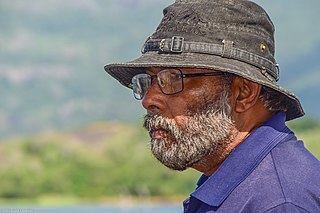
Delgahawaththage Raj Kumar Somadeva is a Senior Professor in Archaeology at the Postgraduate Institute of Archaeology, University of Kelaniya in Sri Lanka, and a Senior Fellow of the Sri Lanka Council of Archaeologists. He has received the Charles Wallace Research Fellowship from the Institute of Archeology at University College London in 2005.
Marcia Hampton Rioux was a Canadian legal scholar. She was a Distinguished Research Professor in the School of Health Policy and Management at York University.
Fiona Kerr Paisley is a Scottish-born Australian cultural historian at Griffith University. Her research and writing focuses on Australian Indigenous, feminist and transnational history.
Leopold Immanuel Jacob van Dort was a Dutch Hebrew professor, responsible for translating an Indian version of the Hebrew New Testament and a Hebrew Quran.
